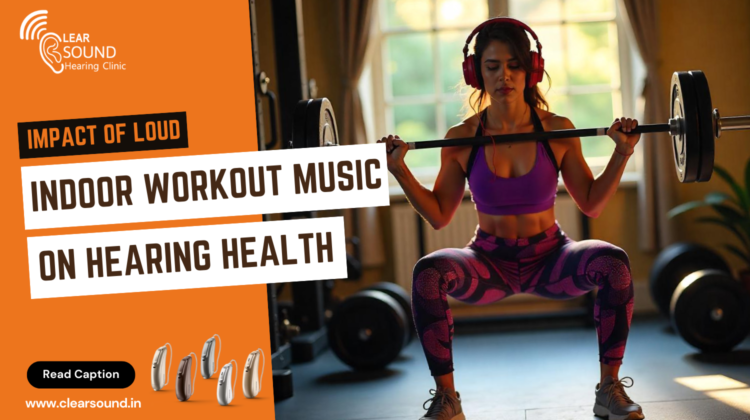
Impact of Loud Indoor Workout Music on Hearing Health
In today’s fast-paced lifestyle, staying fit has become a top priority. Whether it’s hitting the gym, joining a Zumba class, or attending a high-energy indoor cycling session, people in Delhi NCR and across India are turning to loud, music-driven environments to stay motivated. But while thumping bass and high-decibel beats may push you to work harder, they may also be silently harming something irreplaceable — your hearing.
Understanding Safe Sound Levels
According to the World Health Organization (WHO), sound levels above 85 decibels (dB) can begin to cause hearing damage if exposure is prolonged. Many gyms and fitness studios regularly play music at levels ranging from 90 to 100 dB or more, especially during peak hours or group classes. This level of noise, when experienced daily, can lead to Noise-Induced Hearing Loss (NIHL).
Why Indoor Workout Music Is a Hidden Threat
Unlike concerts or construction sites, people rarely consider fitness centers as high-risk zones for hearing damage. However, enclosed spaces combined with echoing sound systems intensify the impact on the ears. Since workouts typically last between 30 minutes to an hour, this regular exposure adds up over time, especially if you’re attending classes multiple times a week.
Symptoms to Watch Out For
- Ringing or buzzing in the ears after a workout session (Tinnitus)
- Difficulty understanding speech in noisy environments
- A feeling of ‘fullness’ in the ears
- Gradual decrease in hearing clarity
Who Is Most at Risk?
- Fitness trainers and instructors who are exposed to loud music daily
- Regular gym-goers attending high-intensity or music-based classes
- Individuals already experiencing minor hearing issues
Tips to Protect Your Hearing While Staying Fit
- Use Noise-Cancelling Earplugs: Special earplugs designed for music can reduce volume without distorting sound quality.
- Monitor Volume Levels: If you’re in control of the playlist, keep the volume below 85 dB.
- Take Breaks: Step out or take short breaks during long sessions to give your ears a rest.
- Talk to Your Trainer: Request lower volume if it feels too loud. Trainers often don’t realize the impact.
- Get Your Hearing Checked: Regular hearing tests can catch early signs of damage.
The Bigger Picture – Awareness & Responsibility
Fitness centers in Delhi NCR must understand their role in ensuring overall health, including hearing health. By investing in better acoustics, installing decibel meters, and educating trainers and members, they can contribute to long-term wellness.
Conclusion
Staying fit should not come at the cost of your hearing. With a little awareness and proactive measures, you can enjoy your workouts without compromising your auditory health. So next time you walk into your favorite fitness studio, remember: your ears need protection too.
#ClearSoundTip: Your hearing is just as important as your heart rate. Keep the beats, but protect the ears!








